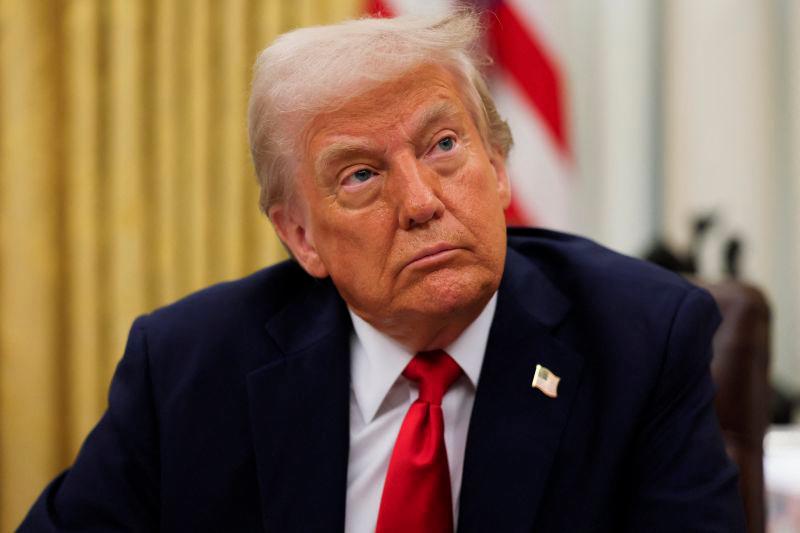WASHINGTON: Donald Trump loves few things more than talking about his affinity for tariffs, but it's nothing new: he's been saying the same thing for decades.
“To me, the most beautiful word in the dictionary is ‘tariff,‘” Trump repeatedly said on the campaign trail for the 2024 election.
He has since joked that it is now his fourth favorite word, after love, God and family -- but his commitment to them remains as strong as ever.
The 78-year-old Republican has promised a “Liberation Day” for America on Wednesday when he announces sweeping “reciprocal” tariffs targeting any country that has import levies against US goods.
The sudden trade war has sent leading world economies scrambling -- yet anyone surprised by the onslaught has not been listening to Trump himself.
Other policies have come and gone, especially on hot-button issues such as abortion, but Trump's belief that America is being ripped off by the world has remained one of his core values.
So has his innate conviction that tariffs are the solution, despite arguments by opponents and many economists that US consumers will suffer when importers pass on increased prices.
'Ripping off'
“I am a Tariff Man,“ Trump declared in a social media post back in 2018 during his first presidential term.
In fact, Trump has been saying as much since the 1980s.
His main target then was Japan, as Trump -- best known in those days as a brash property dealer and tabloid fixture -- discussed getting into politics in an interview with CNN's Larry King.
“A lot of people are tired of watching other countries ripping off the United States,“ Trump said in 1987, using rhetoric that has changed little in the intervening 38 years.
“Behind our backs, they laugh at us because of our own stupidity.”
In a separate interview with chat show host Oprah Winfrey, he raged: “We let Japan come in and dump everything right into our markets.”
By the 1990s and early 2000s, China entered his crosshairs, and Beijing remains one of his top tariff targets, along with Canada, Mexico and the European Union.
In his successful 2016 election campaign, Trump stepped up the rhetoric, saying: “We can’t continue to allow China to rape our country.”
'Very rich'
During his second term, Trump has also started citing a historical precedent going back more than a century -- President William McKinley.
McKinley's passion for both territorial expansion and economic protectionism during his time in office from 1897 to 1901 could have been the model for Trump's “Make America Great Again” policies.
“President McKinley made our country very rich through tariffs and through talent -- he was a natural businessman,“ Trump said in his inauguration speech in January.
Trump's promises of a “Golden Age” harkens back to the so-called “Gilded Age” that culminated with McKinley’s presidency, a time when America’s population and economy exploded -- along with the power of oligarchs.
In addition to deploying tariffs, McKinley presided over a period of territorial adventurism for the United States, including the Spanish-American war and the purchases of Guam, Puerto Rico and the Philippines.
Such moves echo Trump's own designs for Greenland, Panama and Canada.
The two also share the unwanted similarity of being struck by an assassin's bullet -- although Trump survived the attempt on his life at an election rally last July, while McKinley was killed by an anarchist in 1901.









